Turkey president Erdogan: Women are not equal to men
- Published
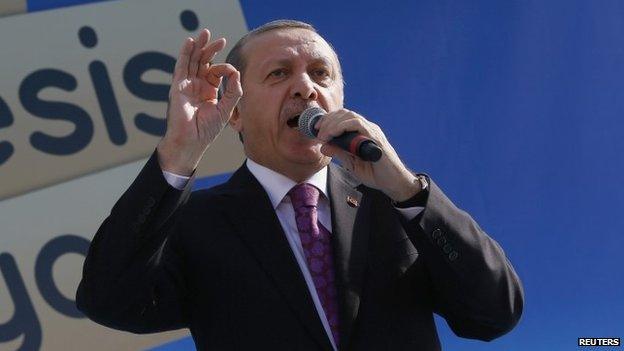
Recep Tayyip Erdogan has been accused of authoritarian tendencies - but he remains popular
Turkish President Recep Tayyip Erdogan has said women cannot be treated as equal to men, and has accused feminists of rejecting motherhood.
"You cannot put women and men on an equal footing," he told a meeting in Istanbul. "It is against nature."
He also said feminists did not grasp the importance of motherhood in Islam.
His comments often seek to appeal to his pious core supporters, says the BBC's Mark Lowen in Istanbul, but they anger more liberal voters.
Turks who have more secular views argue that the government's social policies are taking the country in a dangerous direction, our correspondent says.
Mr Erdogan has previously urged women to have three children, and has lashed out against abortion and birth by Caesarean section.
'Delicate nature'
His latest remarks were delivered at a women's conference in Istanbul.
"In the workplace, you cannot treat a man and a pregnant woman in the same way," Mr Erdogan said, according to the Anadolu news agency.
Women cannot do all the work done by men, he added, because it was against their "delicate nature".
"Our religion regards motherhood very highly," he said. "Feminists don't understand that, they reject motherhood."
He said women needed equal respect rather than equality.
Mr Erdogan also told the Istanbul meeting that justice was the solution to most of the world's issues - including racism, anti-Semitism, and "women's problems".
The Turkish leader often courts controversy with his statements.
Earlier this month, he claimed that Muslims had discovered the Americas more than 300 years before Christopher Colombus.
In his 11 years as prime minister, Mr Erdogan became a crucial player in regional politics.
However, his reputation has suffered recently over the crisis in Syria, and accusations of authoritarianism.
- Published20 November 2014
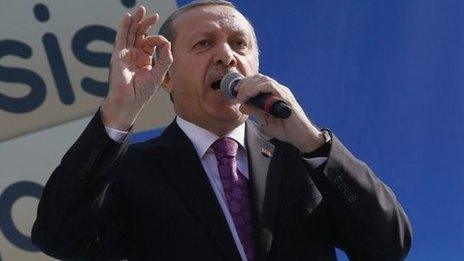
- Published15 November 2014
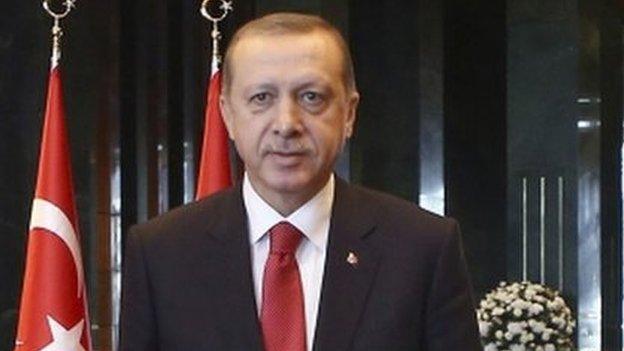
- Published14 November 2014
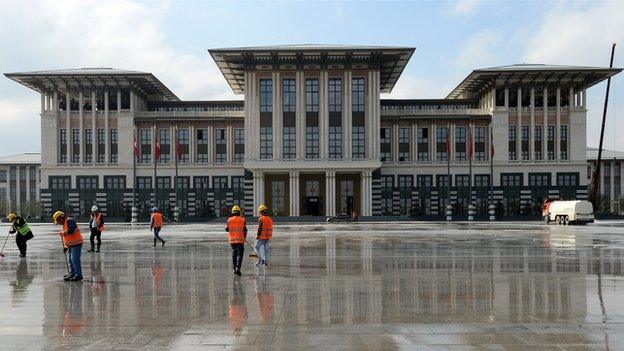
- Published24 March
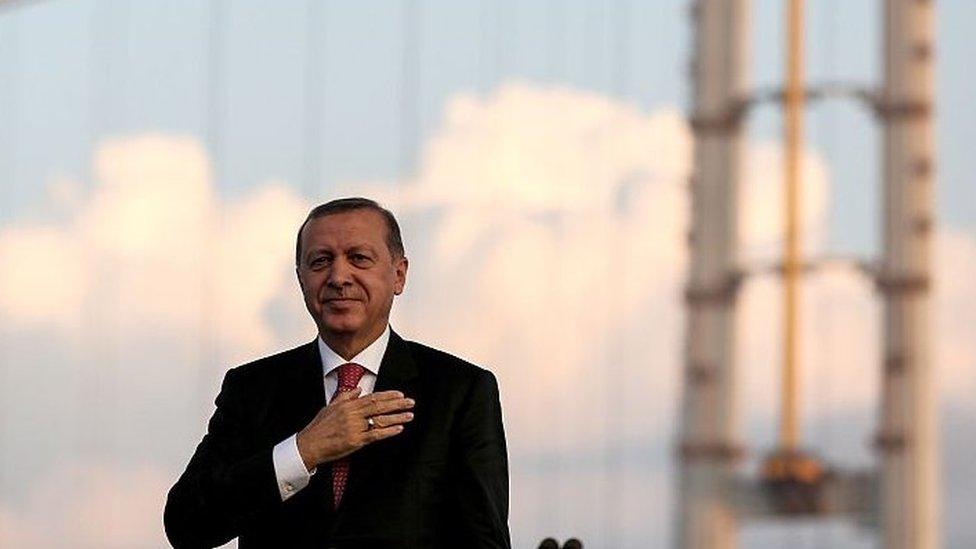
- Published28 October 2014
- Published20 October 2014
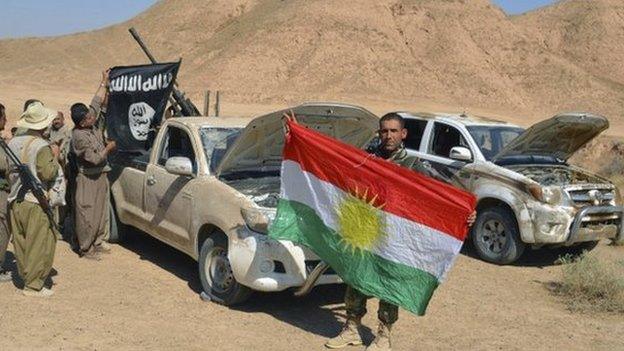
- Published12 September 2014
